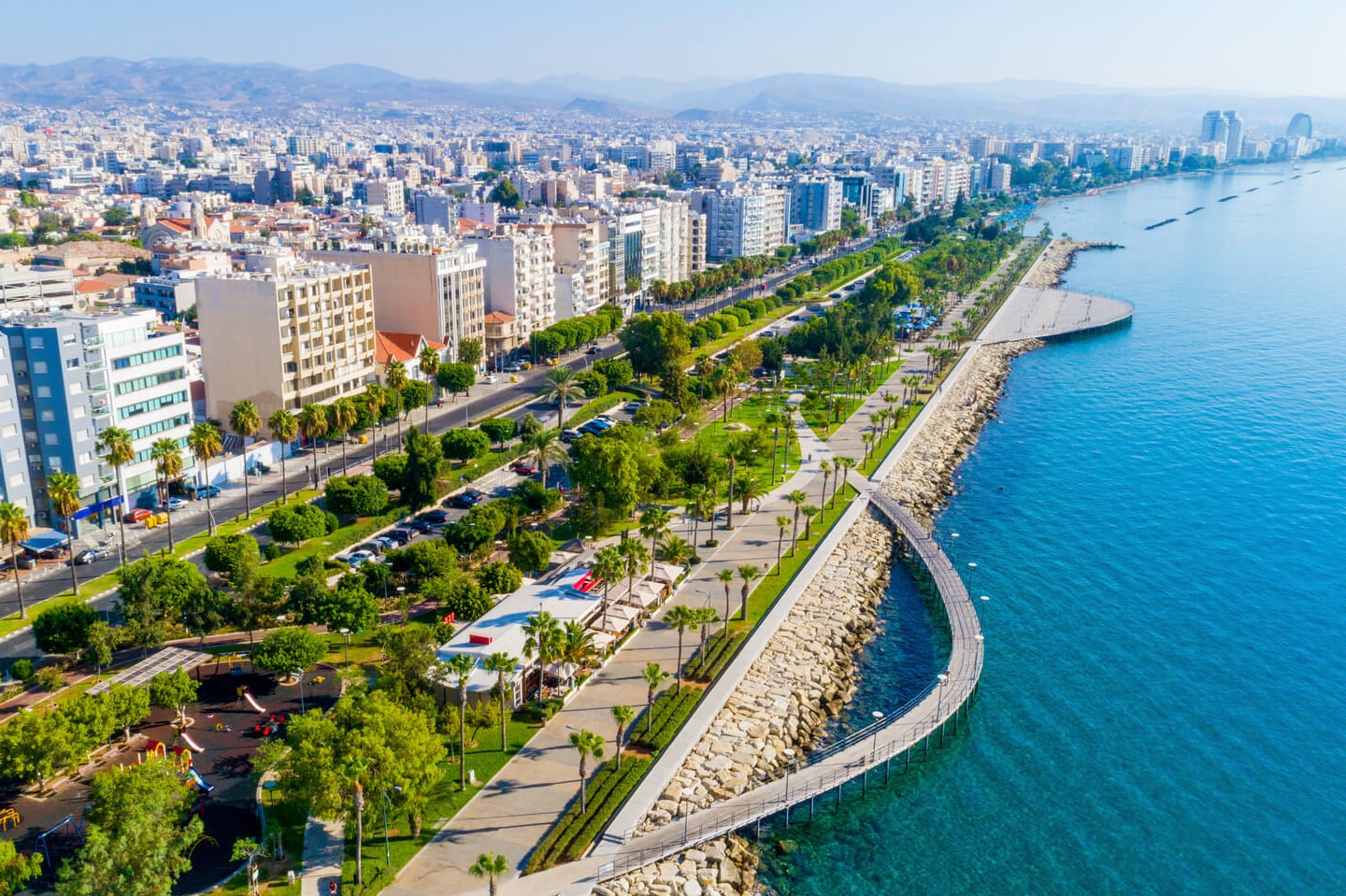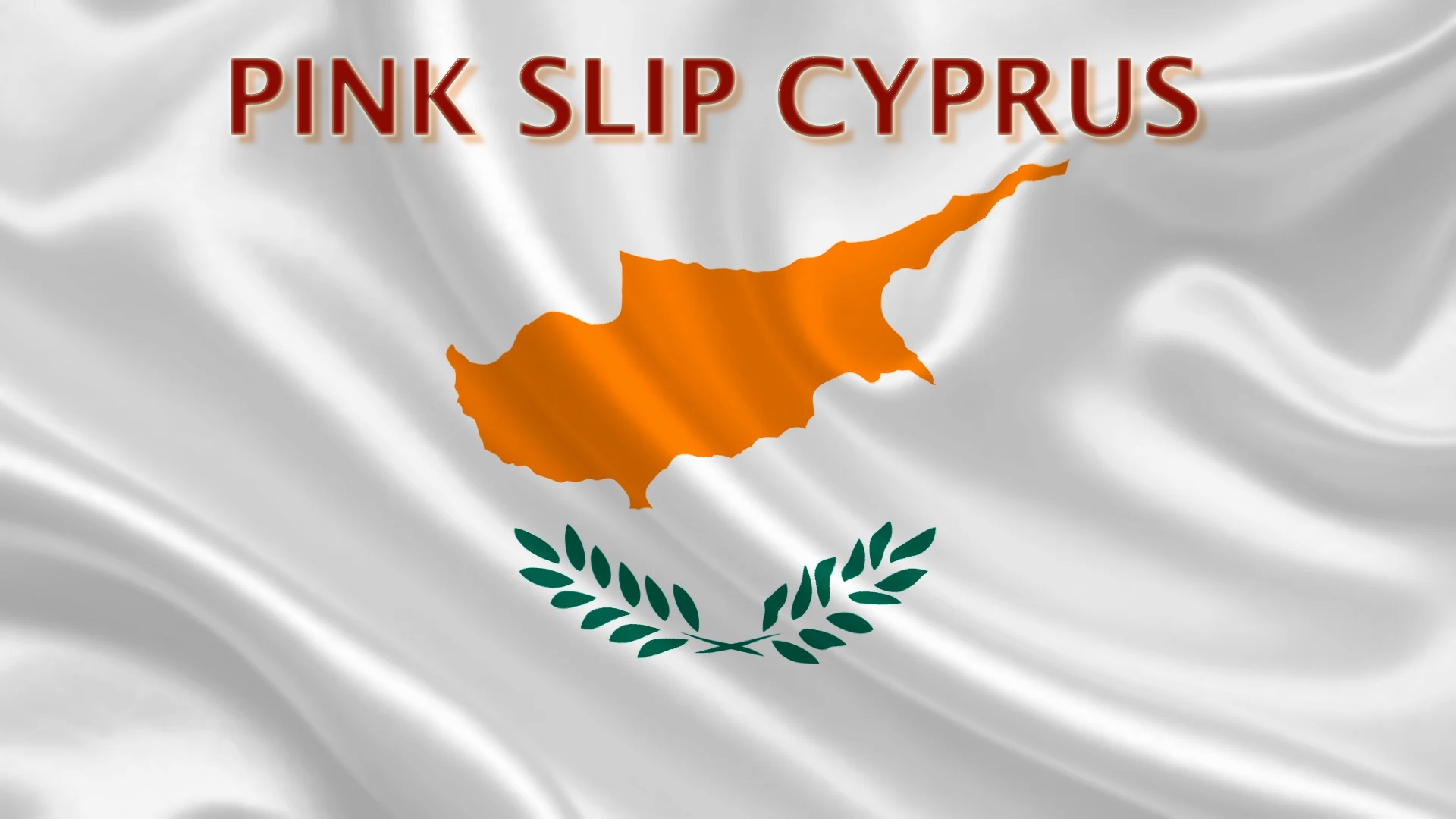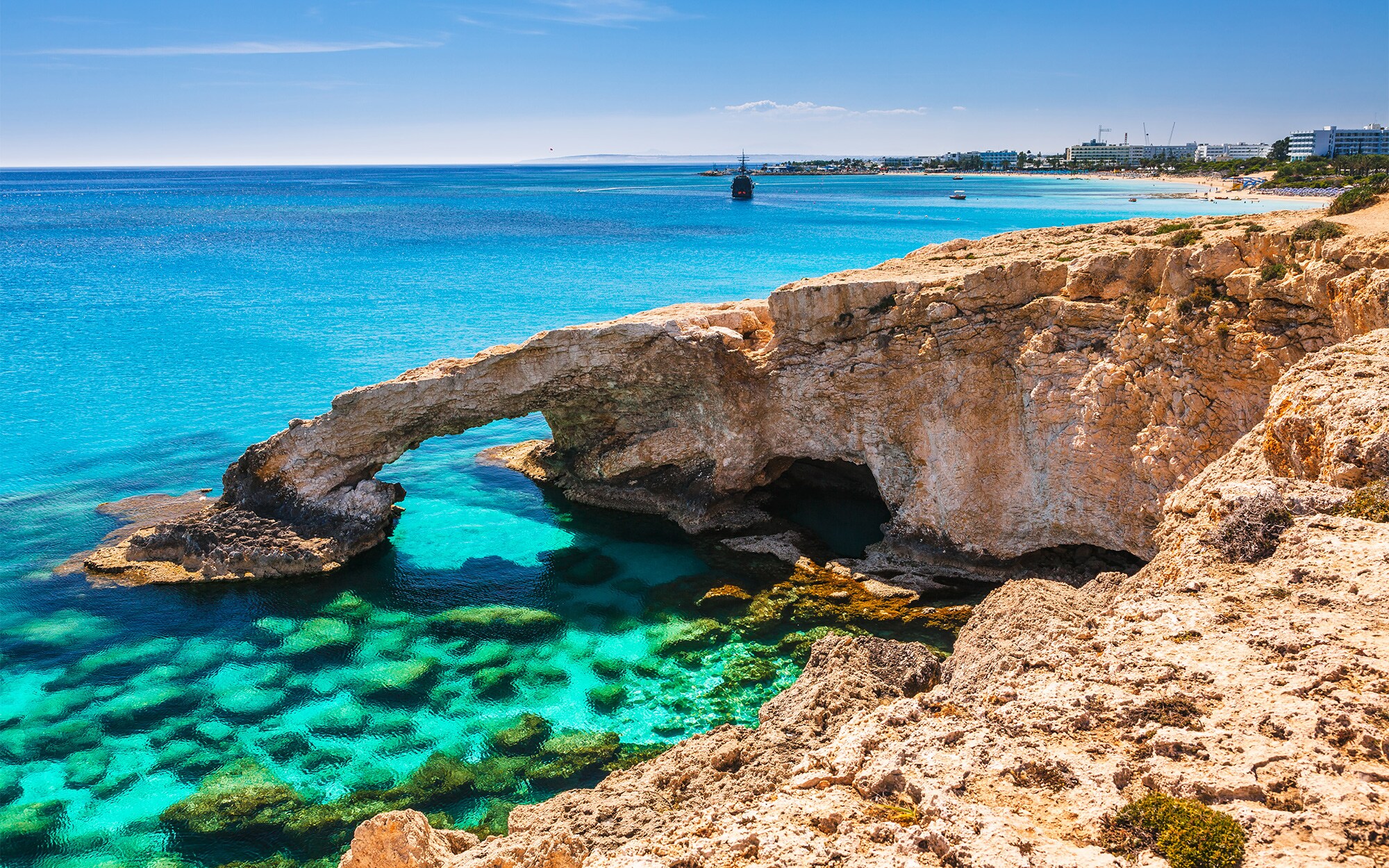Cyprus immigration requirements in 2026. A complete guide for expatriates.
Cyprus Immigration Requirements
In this guide to Cyprus immigration requirements, we will cover the primary schemes and permits that can be acquired to immigrate to Cyprus.
There are three primary schemes for citizens to reside in Cyprus legally.
- Pink Slip: This scheme is for non-EU citizens who want to live, work or study in Cyprus.
- Yellow Slip: This scheme is for EU citizens who want to reside and work in Cyprus.
- Permanent Residency: This scheme is for non-EU residents who want to live in Cyprus permanently (but not to work) by acquiring a house.
Read on to find out about the following Cyprus immigration permits.
- Pink Slip Cyprus
- Work Visa in Cyprus
- Student Visa in Cyprus
- Yellow Slip Cyprus
- Cyprus Permanent Residency
- Contact information
Pink Slip
Any non-EU national who wants to live in Cyprus temporarily has to obtain a “Pink Slip” (also known as Cyprus temporary residence permit).
Before obtaining the pink slip, travelers must get an entry visa. The type of visa they need to obtain depends on the purpose they have traveled, such as to work or study.
Once in Cyprus, the pink slip allows the visitors to extend their stay in the country for more than the duration of their specific visa (3 months).
We will briefly cover details about the permit and what is required to obtain one.
What is Pink Slip?
Cyprus pink slip, or the temporary residence permit, allows non-EU citizens to extend their stay in Cyprus for over 90 days.
The Cyprus pink slip is an official document allowing non-EU members to live legally in Cyprus for over three months.
Before anyone can apply for a pink slip, they must first obtain an entry visa. The migrant should obtain an entry visa in their country of residence before traveling to Cyprus.
Depending on their purpose of travel, entry visas include visitor, student, employment and immigrant visas.
Once they have arrived in Cyprus, they can apply for a pink slip if they want to extend their stay.
Pink slip permits allow legal residency. This way, any foreign national who wants to reside in Cyprus has to have the right to live here legally.
The duration of the visa they traveled with (student visa, visitor visa, etc.) does not affect how long they can extend their stay.
Under this permit, the traveler can live as a visitor in Cyprus without the right to work (unless they have acquired a work visa).
Family members can also apply for pink slips as the applicant’s dependents, i.e., spouse and children under 18 years old. However, a separate application form must be made for each family member.
The pink slip is usually valid for 1 year, lasts up to 4 years, and can be renewed annually.
Requirements for Pink Slip
After traveling on short-stay visas, if non-EU citizens want to acquire short-term residency in Cyprus (potentially leading to permanent residency), they must apply for a temporary residence permit (pink slip).
You must submit an application form for a temporary residence permit called MVIS3 to obtain a pink slip. You must submit this application at the Immigration City Unit in the district you are living in.
You also need to provide further documentation along with your application form, which we will outline below.
Before this point, you should book your meeting with the correct immigration unit before applying for the pink slip.
Meetings are usually scheduled around 2 to 3 weeks in advance, so booking the appointments promptly following your arrival to Cyprus is recommended. Within 7 days, to be exact.
You will need a copy of your passport, the visa you are traveling with, and your arrival stamp to book your meeting at the correct immigration unit.
We recommend you follow these steps. You can also ask the immigration unit for further advice.
- In advance of your visa expiry, book a date at the correct immigration unit to submit your application.
- Declare the choice of your qualifying residential property: rented or purchased.
- Open a Cyprus bank account and transfer money from abroad.
- Prepare all necessary documents to accompany the Cyprus temporary residence application. You must get these documents officially translated (English or Greek) and be double-certified or Apostilled.
- Attend the appointment to submit your application at the immigration unit.
- Pay the application payment fees.
- Give your biometric data and identity (photo ID, fingerprint ID, etc.).
- Acquire an immigration health insurance. For a free quotation visit our site.
The Cypriot immigration authorities will help you to apply for the pink slip when you apply at the designated immigration unit.
Your application will be forwarded to the Civil Registry and Migration Department (CRMD) in Nicosia to be processed.
You will be notified within 6 months if your application is approved. You will also be notified if your application is not approved.
You will be informed when you will receive your residence card or why your application wasn’t approved.
To avoid this lengthy process, you can ask a legal firm or a reputable immigration services provider to assist you with understanding the Cyprus immigration requirements.
Pink Slip Cyprus
Follow this link if you want to find out more about Pink Slip Cyprus.
Work Visa in Cyprus
Residing and working in Cyprus comes with many benefits. Cyprus is among the European Union’s quickest-growing economies, and its residents benefit from the lowest corporate tax in the Eurozone.
Anyone traveling to the island to work has to have the legal right to do so. All non-EU nationals traveling to Cyprus for paid employment need a Cyprus work visa.
If you are due to be employed in Cyprus, you must arrange to acquire the necessary visas and work permits before moving there.
The following groups are exempted from needing a Cyprus work visa.
- Citizens of EU member states
- Citizens of Liechtenstein, Iceland, Switzerland, and Norway (EFTA)
Note: EU nationals also must apply for a work permit to reside and work legally in Cyprus. However, EU nationals should apply for the Yellow Slip (i.e., Registration Certificate for EU Nationals).
We will briefly cover the Cyprus work visa and how to get one.
How does a work visa work in Cyprus?
Cyprus has various visas available to foreigners who plan to travel to the island for specific means. One of these visa types is a work visa.
The work visa allows the foreign national to enter the country to live and work. However, the visa is valid for a limited time.
The Cyprus work visa does not grant foreign nationals to look for employment or to work in the country.
If you travel to Cyprus on a work visa and then wish to seek employment, you must obtain a separate visa once you have arrived in the country.
Non-EU citizens require three separate documents to live and work in Cyprus. The documents are as follows:
- Work Visa. This document allows the foreign national to work for 90 days maximum in Cyprus.
- Work Permit. This document authorizes the permit holder to work in Cyprus for over 90 days (the employer will request this document).
- Temporary Residence Visa. This document is required for any foreign national who plans to live in Cyprus for over 3 months and lasts up to 4 years.
Requirements for a work visa in Cyprus
The following section outlines the documents you must present during the Cyprus work visa application process.
The documents required for a Cyprus visa
- Certificate of police checks.
- Proof of travel health insurance.
- A completed work visa Cyprus application form.
- Evidence of adequate funds to support your living standards.
- Medical clearance certificate to prove you don’t have specific illnesses.
- Copy of a valid passport (minimum one-year expiry date after your intended arrival).
- Contract of employment with an employer based in Cyprus, stamped by the Department of Labor.
The documents required for a Cyprus work permit
- Copy of a valid passport (as above).
- Your Cyprus work visa (within the expiry date).
- Proof of your accommodation in Cyprus.
- Proof of your financial savings to cover your living expenses.
- Tax clearance certificate from the employer.
- Proof of an employment contract based in Cyprus.
- Completed work permit applications from the employer.
- Completed temporary residence application form and signed (MVIS3).
- Proof of medical certificates proving you are in good health.
- A recent medical certificate proving you haven’t got certain illnesses issued within the last 4 months (TB, Hepatitis B, HIV/AIDs, or syphilis).
- Certificate of criminal background check (issued within the last 6 months).
- Evidence of health insurance. Please see Pitsas Insurances - we can provide you with a free quote.
- Bank statement as proof you can pay the application fee.
- Bank guarantee (if required).
To find out more about the Cyprus Work Visa, please see here.
Student Visa in Cyprus
Before traveling to the island, all non-EU citizens who want to study in Cyprus must acquire a student visa in their home country.
This visa will allow them to legally study and live in Cyprus for up to 90 days.
After arriving in Cyprus, they can apply for a temporary residence permit to extend their stay.
We will briefly cover the student visa and what is required to obtain one.
How does a student visa work in Cyprus?
If you travel to Cyprus as a non-EU citizen to study, you must first apply for a Cyprus student visa and a temporary residence permit.
The student visa can be obtained in your home country, and you need to obtain this visa before arriving in Cyprus.
The student visa will allow you to enter and live in Cyprus for up to 90 days (3 months).
If your program of study is a long course with a duration of more than 90 days, you must obtain a temporary residence permit after your arrival.
This temporary residence permit (i.e., the “Pink Slip”) allows you to extend your stay for a period of up to 4 years.
Requirements for student visa in Cyprus
A Cyprus student visa costs €20, with an approximate turnaround time of one month to receive your visa if your application is successful.
A Cyprus temporary residence permit costs €70, and you will be notified within three months if your application has been accepted.
Here is a breakdown of the documents you must present at different stages of the application process.
The documents required for a student visa
- Certificate of police checks.
- Travel health insurance documents.
- Proof of funds to pay the application fee.
- Your academic record and qualifications.
- A completed student visa application form.
- Proof of English language proficiency (IELTS or TOEFL).
- Evidence of adequate finances to support your living expenses.
- Four professional passport photographs with a white background.
- A valid passport (with a minimum of one blank page and an expiry date at least one year after your intended arrival date).
The documents required for Cyprus temporary residence permit
- Copy of your passport.
- Your Cyprus student visa (within the expiry date).
- Proof of your accommodation in Cyprus.
- Official documented admissions letter from your university.
- Proof of your financial savings to cover your living expenses.
- Temporary residence application form completed and signed (MVIS3).
- A recent medical certificate to prove you don’t have certain illnesses such as TB, Hepatitis B, HIV/AIDs, or syphilis (issued within the last 4 months).
- Certificate of police clearance (issued within the last 6 months by your home country).
- Evidence of health insurance Please visit our site for a free quotation.
- Bank statement proving you can pay the application fee.
- Bank guarantee (if required).
To find out more about the Cyprus Student Visa, please see here.
Yellow Slip Cyprus
Unlike the Pink Slip for non-EU nationals, the Yellow Slip is designed for EU nationals.
To live and work legally in Cyprus, EU nationals must apply for a “Registration Certificate.” This certificate is called “Yellow Slip.”
As the name implies, the certificate is printed on yellow paper.
It is available to all EU citizens who want to extend their stay in Cyprus for any number of specific reasons (working, searching for property, etc.).
All EU or EEA member state nationals are considered to be European citizens for the purpose of the yellow slip application.
Read on to learn more about this certification and what is required to obtain one.
What is Yellow Slip?
As an EU or EEA national, you can freely enter, live and work in Cyprus without a temporary short-stay visa for up to three months. You are legally allowed to participate in economic activities with no paperwork involved.
Nevertheless, if you want to stay in Cyprus for over three months, you must obtain a registration certificate (the yellow slip).
You should register your stay at the official Civil Registry and Migration Department (CRMD). This process is covered more analytically below.
Compared to non-EU nationals, EU nationals do not need to undergo a complicated application process. The process is more straightforward and usually won’t be rejected.
Entering Cyprus as a European Union, EEA, or EFTA member (i.e., Switzerland, Norway, Liechtenstein, Iceland) is typically hassle-free.
You can gain entry to Cyprus simply by showing your valid passport.
Nevertheless, if you plan to reside and work in Cyprus, you must apply for the yellow slip at the CRMD.
You must prove that you will not become a financial burden to the Cypriot economy, especially regarding health care and the social system.
Requirements for Yellow Slip Cyprus
As noted, applying for a yellow slip (work permit) in Cyprus is relatively straightforward.
Cyprus yellow slip appointment
The applicant or their official representatives need to book the application appointments.
It is recommended to schedule an appointment with the immigration authorities in advance. It’s ideal to book the appointment one month before the required submission date.
The applicants must be present for this appointment when applying. The application cannot be submitted by their official representative alone, even if they hold a power of attorney.
If you work with a representative, both of you must be present at the appointment.
The application form should be submitted within four months of your entering Cyprus.
Yellow slip requirements
Once your appointment is set, it’s time to start preparing the required documents.
You can ask the immigration authorities what you must bring to your appointment, but there is a chance something will be missed.
If you do not bring all the documents needed for your first application appointment for any reason, another appointment will be scheduled.
To avoid that hassle, have your documents ready in advance. Each person applying must bring all of the necessary documents.
The documents required for the yellow slip application
- Two passport photographs.
- MEU1 application form duly completed and signed.
- Copy of a valid passport with expiry date and details clearly visible.
- Copies of your marriage certificate duly certified and translated (if applicable).
- Copies of your children/s birth certificates duly certified and translated (if applicable).
- Copies of your rental or apartment/house sale agreement as proof of address (the rental agreement needs to be for 1-year minimum, one tax office stamped copy, certified by Muhtar or certifying officer).
- Proof of a Cyprus bank account with bank statements as proof or bank statements from abroad (if applicable).
- A confirmation letter and a payslip from an employer (if working abroad).
- If you are working in Cyprus: 1. Confirmation letter from employer; 2. Social Insurance registration and annual income certificate, 3. The employer needs to sign the form.
- Proof of immigration health insurance covering body repatriation expenses. For the cheapest immigration health insurance your can visit our site.
Note: If applicable to your application, children/s birth certificates and marriage certificates need to be translated into English and be apostille or certified by the Ministry of Foreign Affairs.
This process must happen in the country of issue and by the Cyprus Embassy of that country.
Tip: Take 2 official copies of each document.
To read about the whole process for applying for a Cyprus Yellow Slip, please see here.
Cyprus Permanent Residency
Cyprus Permanent Residency (Cyprus Golden Visa) entitles non-EU citizens and family members to reside in Cyprus as permanent residents.
Cyprus Permanent Residency, also known as an unlimited residency, allows non-EU nationals to reside permanently in Cyprus with no limitations or visa requirements.
This residency permit does not expire. Therefore, the residency holders do not need to renew the permits annually like the temporary residency permit (pink slip).
Residency holders can apply for Cyprus citizenship after five consecutive years of living there. After this process, the person will be recognized as a Cypriot citizen.
How to get permanent residency in Cyprus
A Cyprus Permanent Residency (PR) permit is divided into several different categories.
There is only one way to acquire permanent residency by investment since changes were made to the Aliens and Immigration Regulations in May 2023 to improve the immigration by investment system.
This PR option is known as Category 6.2.
There are also the following categories:
- Residency with the right to work
- Category C
- Category E
- Other types of permanent residency in Cyprus
Cyprus permanent residency by investment
This type of residence permit is for investors and is known as “Cyprus permanent residency by investment” or “Cyprus residency by buying a property” and category 6.2.
The foreign applicant must invest at least €300,000 in one of the following categories.
- The purchase of a new residential property from a land development company (non-resale - sold for the first time) at a value of at least €300,000 (plus VAT - 19%).
- The purchase of a commercial/business property (new or resale) to use for commercial purposes, such as shops, offices, hotels, developments, or a combination) with a total value of €300,000.
- The acquisition of shares worth €300,000 of a new or existing company based in Cyprus that has at least five employees and a physical presence (i.e. economic substance).
- Invest €300,000 in shares of a Cyprus Investment Organisation for Collective Investments (those carried out in Cyprus). Types AIF, RAIF, AIFLNP, UCITs.
Residency with the right to work
This type of residency permit is specifically for owners and employees of foreign interest companies (international business companies).
These types of permits are in categories C and E.
Category C Permanent Residency
Category C residence permits are specifically for investors who manage and work in their own companies.
A capital of €260,000 must be brought from abroad to be used for their business activities in Cyprus.
Category E Permanent Residency
Category E residence permits are offered to persons who are offered permanent employment in Cyprus.
Other types of permanent residency in Cyprus
Living in Cyprus for 5 years PR
Non-EU nationals who have legally resided in Cyprus for five consecutive years can apply for a long-term residence permit.
The applicants must have a valid Cyprus temporary residence card and have lived in Cyprus for 5 years.
This is known as the naturalization scheme (M127 form) based on years of residence.
Marriage to Cypriot PR
Those married to a Cypriot citizen are eligible for permanent residency rights. These people are eligible to apply for an unlimited residency permit.
In addition, the parents of the Cypriot citizen (or parents-in-law) and minor children from a previous marriage can also apply for the residency permit.
Requirements for Cyprus Permanent Residency
Applicants looking for Cyprus residency by investment (Golden Visa Cyprus option) must meet the following criteria.
They must follow the criteria outlined above and below.
- The investment money must be transferred from abroad.
- The total income calculation may include the applicant’s income and that of their spouse.
- The investment payment must be made to the seller’s bank account in Cyprus.
- The investor must provide tax declarations of where they are a tax resident. This amount can include salary, rent, pensions, fixed deposits, or stock dividends.
- The investment money for non-residential real estate (total or partial) may come from activities within Cyprus, so long as the money is taxed in the country.
- They must register their sales agreement at the Land Registry.
Off-plan properties or properties under construction can also be acquired. It is essential to acquire title deeds (many developers in Cyprus don’t give title deeds).
The property can be purchased under the company’s name. However, the beneficiary will be the investor or their spouse.
Note: The PR permit will be void if the applicant ceases to hold the investment. If necessary, they must replace the investment (e.g. if they sell it) with another asset of the same or greater value, as stated by the criteria conditions.
Annual income requirements
The investor and their spouse must prove an annual income of a minimum of €50,000, plus an additional payment of €15,000 is required for a dependent spouse and €10,000 for each dependent minor child.
The income can include salaries, pensions, dividends, fixed deposits, and rents.
Family members requirements
The Cyprus permanent residency permit covers dependents (spouses and children up to 18).
Children between 18 and 25 can apply for a residence permit if they fulfill the following criteria.
- The children are unmarried.
- They are dependent on their parent’s income.
- They are university students abroad with a minimum of six months of study remaining from the date of the application submission.
- The investor must provide an additional income of €10,000 for each dependent.
If the named children wish to study in Cyprus, they must apply as students for a temporary residence permit.
Regardless of age, when they finish their studies, they can apply for permanent residency (with the extra annual income condition stated above).
Adult children
Adult children of the applicant who are not dependent on their parents financially can also be granted the right to apply for residency if a higher-value investment is made.
The investment of €300,000 applies to each adult child for the purpose of obtaining an immigration permit.
E.g. for three adult children, you must invest €900,000, plus €300,000 for yourself, totalling €1,200,000.
Each adult child needs their own annual income of at least €50,000, to be increased by €10,000 for a dependent child and €15,000 for a dependent spouse.
Immigration Health Insurance
All applicants shoud present valid immigration health insurance. For the cheapest immigration health insurance in Cyprus visit our site.
Parents and parents-in-law
It is no longer possible to include the parents or parents-in-law of the applicant on their application as of May 2nd 2023.
Permanent residency program conditions and restrictions
The permanent residency holder has to visit Cyprus once every two years. The permit will be canceled unless they visit once every two years.
The permit does not allow the person to work in the country. However, they can be Cypriot company shareholders and receive dividend income from international business activities.
The permit does not allow visa-free travel within European Union member states or abroad. It is only valid in Cyprus.
For more details about the Cyprus permanent residency, see our website here.
Cyprus Immigration Requirements
Below are all the guides we discussed in this guide to Cyprus immigration requirements.
For more information about Cyprus immigration requirements and what Pitsas Insurances can offer you today, follow the link to our website.
You can speak with an Amazon Corporate and Immigration Services (ACIS) legal and immigration expert to help you understand the Cyprus immigration requirements and how to apply for any one of the Cyprus visas.
Contact information
Attention: Pitsas Insurances is not a legal company. We do not provide legal services or advice on immigration issues.
This article has been written for information purposes only.
For more information, you can send an email to [email protected].
Pitsas Insurances Team
Updated 20/7/2023 (with the new legislation changes that occurred in May 2023).






